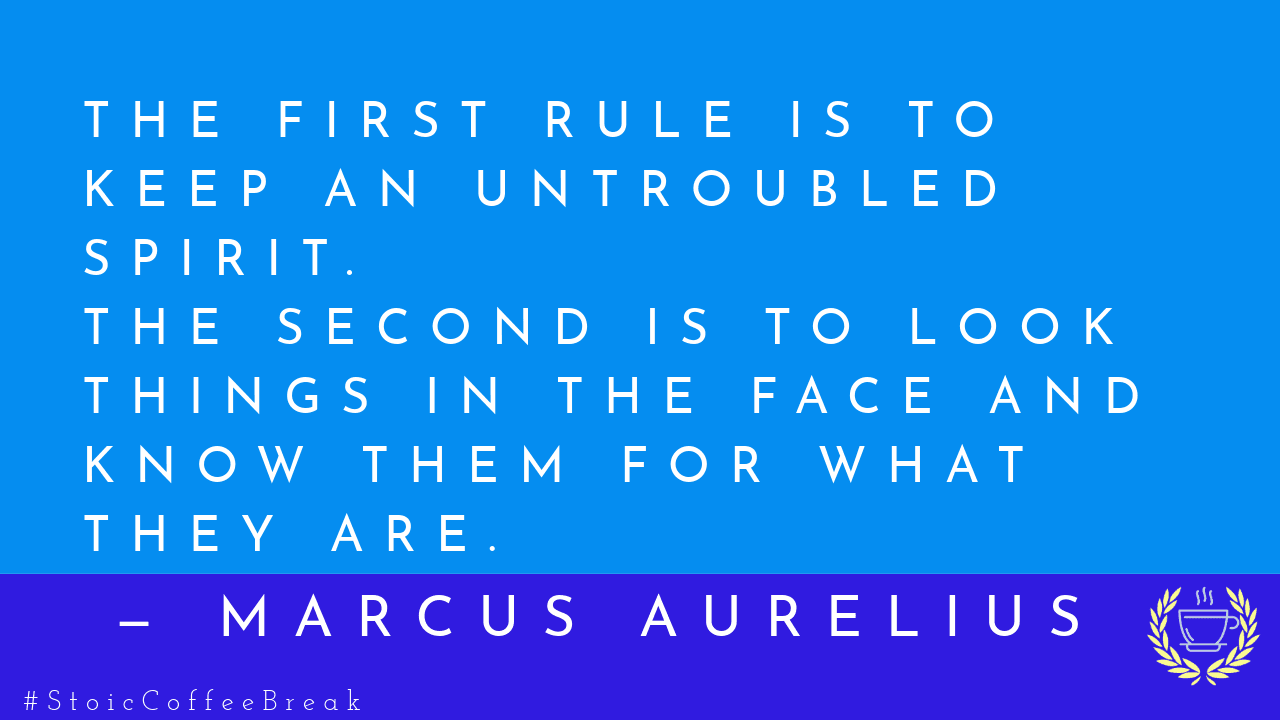Tag: control
-

288 – Starting Stoicism
“Very little is needed to make a happy life; it is all within yourself, in your way of thinking.” —Marcus Aurelius New to Stoicism? Embark on a journey into Stoicism, an ancient philosophy that teaches the mastery of self through control, judgment, and understanding emotions. Discover practical wisdom for living a virtuous life amidst modern…
-

229 – Conscious Communcation
Out beyond ideas of wrongdoing and rightdoing there is a field. I’ll meet you there. —Rumi Have you ever thought about how often we have judgments in our language? Are you even aware of how often we communicate our opinions and feelings about others? What if we could remove judgments from our language? Today I…
-

224 – To You or For You?
It does not matter what you bear, but how you bear it. — Seneca Do you think that life just happens to you? That you are simply a pawn in the game of life? Because there are so many things that we don’t have control over in our lives, it can be easy to fall…
-

223 – Changing Others
When someone is properly grounded in life, they shouldn’t have to look outside themselves for approval. — Epictetus. Why do we spend so much time trying to change other people or expecting that other people will change for us?
-

222 – Power Over Your Mind
The stoics are pretty clear that we control very little on our lives, but we do control the one thing that will make the biggest impact on our lives – our own minds. You have power over your mind — not outside events. Realize this, and you will find strength. —Marcus Aurelius
-

205 – Two Sides of the Same Coin
“Some things are within our power, while others are not. Within our power are opinion, motivation, desire, aversion, and, in a word, whatever is of our own doing; not within our power are our body, our property, reputation, office, and, in a word, whatever is not of our own doing.” — Epictetus One topic that…
-

194 – Find Your Why
“So you were born to feel ‘nice’? Instead of doing things and experiencing them? Don’t you see the plants, the birds, the ants and spiders and bees going about their individual tasks, putting the world in order, as best they can? And you’re not willing to do your job as a human being? Why aren’t…
-
119 – Who is Your Master?
“Any person capable of angering you becomes your master; he can anger you only when you permit yourself to be disturbed by him.” ― Epictetus Show Notes: • Stoics believed strongly that we are all in control of our own emotions • One of the strongest emotions we have to deal with is anger •…
-
105 – Bring Pain To Your Enemy
“Epictetus being asked how a man should give pain to his enemy answered, By preparing himself to live the best life that he can.” — Marcus Aurelius Photo by Fervent Jan on Unsplash
-
99 – Sparing Partner
“A boxer derives the greatest advantage from his sparring partner – and my accuser is my sparring partner. He trains me in patience, civility and even temper.” — Epictetus